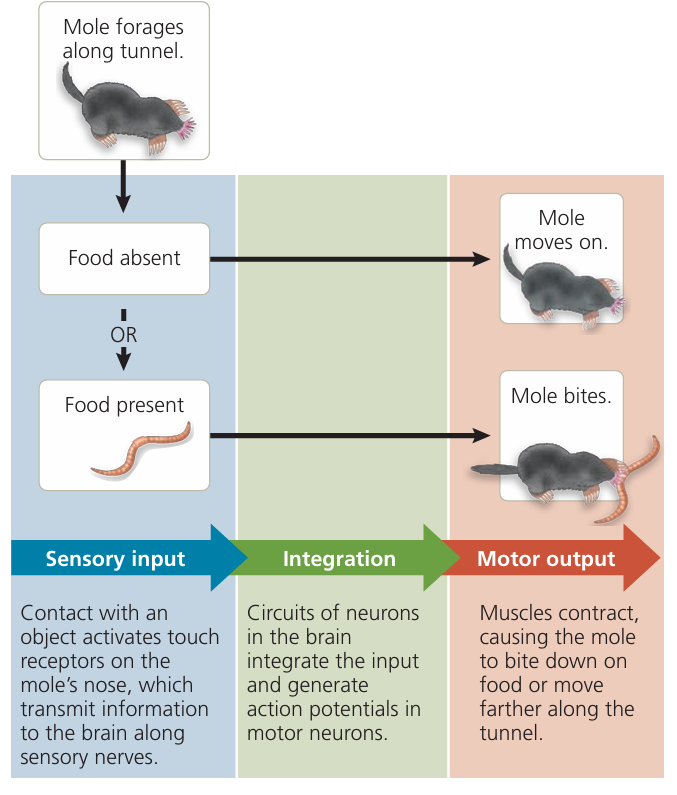IB MYP 4-5 Biology-Senses- Study Notes - New Syllabus
IB MYP 4-5 Biology-Senses- Study Notes – New syllabus
IB MYP 4-5 Biology-Senses- Study Notes – IB MYP 4-5 Biology – per latest IB MYP Biology Syllabus.
Key Concepts:
- Human sensory organs (eyes, ears, skin, etc.)
- Stimulus reception and response
- Sensory adaptation
Senses – Human Sensory Organs
What Are Senses?
Humans have five main senses that help detect changes in our surroundings. Each sense is linked to a special sensory organ that collects information and sends it to the brain for interpretation.
The 5 Main Sense Organs and Their Functions
1. Eyes – Sense of Sight (Vision)
- Detect light, color, shape, and movement
- The retina contains light-sensitive cells (rods and cones)
- Signals are sent to the brain via the optic nerve
2. Ears – Sense of Hearing and Balance
- Detect sound vibrations through ear canal, eardrum, and inner ear
- The cochlea helps us hear; the semicircular canals help with balance
3. Nose – Sense of Smell (Olfaction)
- Smell receptors detect airborne chemicals
- Signals sent via the olfactory nerve to the brain
4. Tongue – Sense of Taste
- Taste buds detect 5 main tastes: sweet, salty, sour, bitter, and umami
- Works closely with smell to enhance flavor
5. Skin – Sense of Touch
- Largest sense organ with receptors for pressure, pain, temperature, and texture
- Spread across the entire body
Summary Table:
| Sense | Organ | What It Detects |
|---|---|---|
| Sight | Eyes | Light, color, movement |
| Hearing | Ears | Sound and balance |
| Smell | Nose | Airborne chemicals (odors) |
| Taste | Tongue | Sweet, salty, sour, bitter, umami |
| Touch | Skin | Pressure, pain, temperature |
How Do Our Senses Work Together?
- Sensory organs detect stimuli (light, sound, smell, etc.)
- Nerves carry messages to the brain
- The brain interprets the signals → we react, feel, and respond
Why Are Our Senses Important?
- Keep us safe from danger (e.g., heat, smoke, sharp objects)
- Allow enjoyment of life — music, food, textures, scenery
- Help us communicate, explore, and learn about the world
Stimulus, Reception, and Response

What Is a Stimulus?
A stimulus is any change in the environment that can be detected by the body and causes a reaction.
- External stimuli: light, sound, touch, pain, temperature
- Internal stimuli: thirst, hunger, low sugar, body temperature
What Detects the Stimulus?
Receptors are special cells that detect stimuli. They are found in sense organs, and each type responds to a different kind of signal.
| Sense Organ | Stimulus Detected | Type of Receptor |
|---|---|---|
| Eyes | Light | Photoreceptors |
| Ears | Sound & balance | Mechanoreceptors |
| Skin | Touch, pain, pressure | Thermo/Mechanoreceptors |
| Nose | Chemicals (odors) | Olfactory receptors |
| Tongue | Taste (chemicals) | Taste receptors |
The Stimulus-Response Pathway
The body responds to a stimulus in three main steps:
- Reception: Receptor detects the stimulus (e.g., eye detects light)
- Coordination: Signal sent to brain/spinal cord → processed and decision made
- Response: Effector (muscle/gland) acts (e.g., blink, sweat, move hand)
Example – Touching Something Hot
| Step | What Happens |
|---|---|
| Stimulus | Hot object touches skin |
| Receptor | Temperature/pain receptor in skin detects heat |
| Coordination | Signal travels to spinal cord for quick decision |
| Response | Muscle contracts — hand pulls away |
Summary Table:
| Step | Role | Example |
|---|---|---|
| Stimulus | Change in environment | Bright light |
| Receptor | Detects the change | Photoreceptor in eye |
| Coordination | Sends and processes signal | Brain or spinal cord |
| Effector | Carries out action | Muscles make you blink |
| Response | Final outcome | Eye closes quickly |
Why Is This Important?
- Helps us react quickly to danger
- Maintains internal balance (homeostasis)
- Enables us to interact with the environment
- Controls both voluntary and reflex actions
Sensory Adaptation
What is Sensory Adaptation?
Sensory adaptation is when your sense organs become less responsive to a constant or unchanging stimulus over time.
Examples:
| Situation | What Happens |
|---|---|
| Walk into a smelly room | Smell fades after a few minutes |
| Put on socks | You feel them at first, then forget |
| Background noise (fan, AC) | You stop noticing the sound soon |
| Cold water | Feels warmer after a while |
Why Does Sensory Adaptation Happen?
- Your brain filters out unimportant information
- It helps focus on new or changing stimuli
- Prevents sensory overload
Which Senses Adapt?
| Sense | Adapts? | Example |
|---|---|---|
| Smell | Yes | Stop noticing food or perfume smell |
| Touch | Yes | Clothes or watch feel invisible later |
| Sight | Yes | Eyes adjust to dark or bright light |
| Hearing | Yes | Ignore ticking clock or traffic noise |
| Taste | Slightly | Strong flavors feel weaker over time |
| Pain | No | Pain stays to alert you — no adaptation |
Is Sensory Adaptation Good or Bad?
- Helpful: Avoids distraction, focuses brain on important changes
- Risky: Might ignore ongoing dangers (like gas leak or loud machinery)
In Biology and Psychology
Sensory adaptation is a clear example of how the nervous system works:
- Receptors reduce signals when a stimulus stays the same
- The brain starts to ignore constant signals
